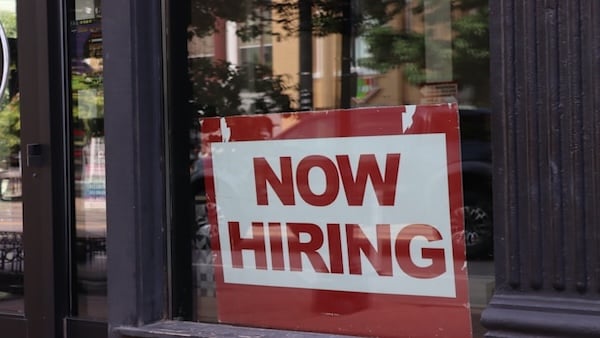When careers stall: how leaders can reignite growth
Careers don’t always move in straight lines. At some point, every employee will hit a plateau, and experience that feeling of standing still, with no...
Manage your equity and shareholders
Share schemes & options
Equity management
Migrate to Vestd
Company valuations
Fundraising
Launch funds, evalute deals & invest
Special Purpose Vehicles (SPV)
Manage your portfolio
Model future scenarios
Powerful tools and five-star support
Employee share schemes
Predictable pricing and no hidden charges
For startups
For scaleups & SMEs
For larger companies
Ideas, insight and tools to help you grow
3 min read
 Graham Charlton
:
Updated on August 13, 2025
Graham Charlton
:
Updated on August 13, 2025

If you want to build a high-performing team that sticks around, you need more than cash.
You need trust, autonomy, recognition, and the kind of rewards that speak to human motivation, not just bank accounts.
In this article, we’ll break down seven non-monetary incentives that actually work. They’re simple, strategic, and proven to boost retention, especially in startups and scaling teams where budgets may be tight, but culture matters more than ever.
“People work for money but go the extra mile for recognition, praise and rewards.” - Dale Carnegie, How to Win Friends and Influence People
Burnout doesn’t fix itself. One of the most meaningful ways to reward great work is with time, without guilt or endless catch-up.
‘Recharge Fridays, mental health days, or surprise long weekends give people a genuine chance to rest. And it’s more effective than vague promises of ‘work-life balance.’
Companies like Buffer, Asana and Evernote have experimented with four-day workweeks or structured time-off schemes, and reported increases in productivity and morale. .
Don’t just offer unlimited leave (which often leads to people taking less). Make time-off visible, encouraged, and led from the top.
Recognition hits harder when it’s shared and when it comes from your peers, not just leadership.
Create lightweight rituals like:
Spotify built an internal tool to support this. Employees send peer-to-peer thank-yous tied directly to company values.
The result? Regular, meaningful recognition embedded into daily culture, not just the annual review cycle.
According to Gallup, employees who receive routine recognition are 4x more likely to be engaged and 5x more likely to feel connected to their culture.
It also helps to make praise specific. ‘Thanks for helping’ is fine, but ‘your onboarding checklist saved us three hours’ is better.

Ambitious people want to grow. And they’ll leave if they feel like they’ve stopped learning.
A small annual budget for courses, conferences, or books sends a strong message that you’re willing to invest in development.
Even better? Pair it with stretch projects, cross-functional tasks, mentorship roles, or internal presentations that help people level up while solving real problems.
Salesforce’s State of the Connected Employee report found that employees who feel their voice is heard are 4.6 times more likely to feel empowered to perform their best work.
Visibility matters. Talented people want to feel heard, and they want to learn from people ahead of them.
Offer:
HubSpot’s internal mentorship network, Spotlight, connects employees across departments with structured expectations and regular sessions.
It’s helped boost career confidence and retention especially among emerging leaders.
Make it structured. Mentorship shouldn’t be another task in someone’s diary. Support both sides with clear expectations and feedback loops.
People don’t want to be micromanaged. They want trustand the ability to work in ways that suit their strengths.
This might look like:
Atlassian’s quarterly ‘ShipIt’ days let employees build anything they want in 24 hours, as long as it benefits the business.
It boosts creativity, collaboration, and ownership, all without a budget increase.
A 2023 Owl Labs report found that employees with flexible work options were 29% more likely to feel happy and productive.
“Micromanage the process, not the people.” - Greg Brockman, OpenAI President & Co-founder
Generic perks rarely move the needle. A thoughtful, personal thank-you can mean much more than another branded hoodie.
Take the time to ask people what makes them feel appreciated. Then deliver it in small but meaningful ways:
The key is intentionality. It shows you care enough to notice what makes someone tick.
This is the big one and often the most misunderstood.
Employee share options aren’t just financial rewards. They’re signals of trust, alignment, and long-term thinking.
They say: “You’re not just an employee. You’re a co-owner.”
When structured well, equity:
“If you treat people like owners, they’ll act like owners.” - Laszlo Bock, former SVP of People Operations at Google
Want to learn how to do this well? Here’s our full guide to employee share schemes. Or you can skip the reading and speak to a specialist.
Bonuses fade but culture sticks.
When people feel recognised, trusted, and invested in, they stay. They perform better. They recommend you to others.
You don’t need deep pockets to build loyalty. You need deep attention to what really matters to your team.
Start with one of these rewards. Tailor it. Make it real. And, most importantly, listen to what your team tells you works for them.
For startups and scale-ups, getting this right is crucial, and it's easier than most founders think.
Tools like Vestd help you design and manage share schemes that are transparent, tax-efficient, and built to align everyone’s incentives with the business’s long-term goals.

Careers don’t always move in straight lines. At some point, every employee will hit a plateau, and experience that feeling of standing still, with no...

Asynchronous work is supposed to help us move faster, work flexibly, and collaborate across time zones without burnout. But for many teams, it’s...

Diversity is one of those goals that almost every company claims to care about.